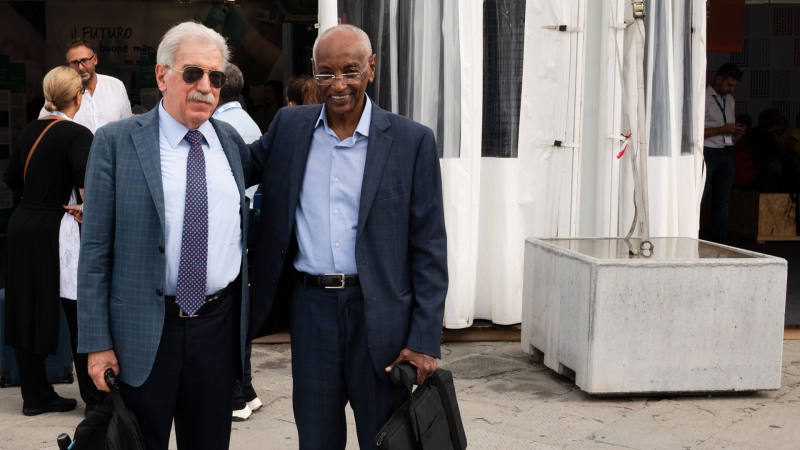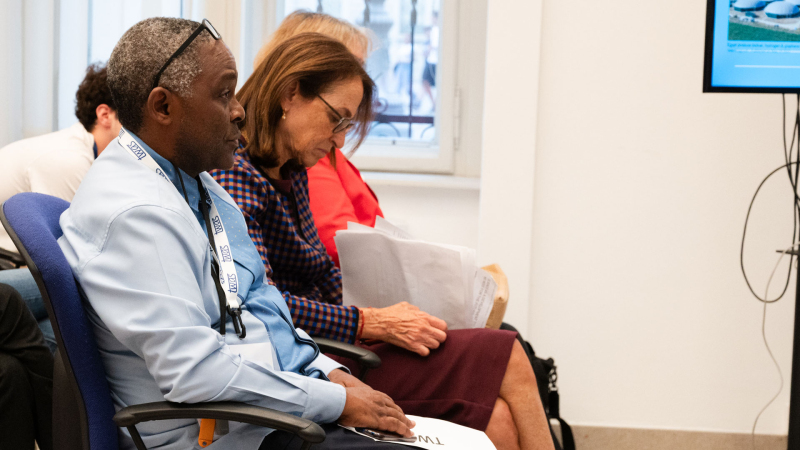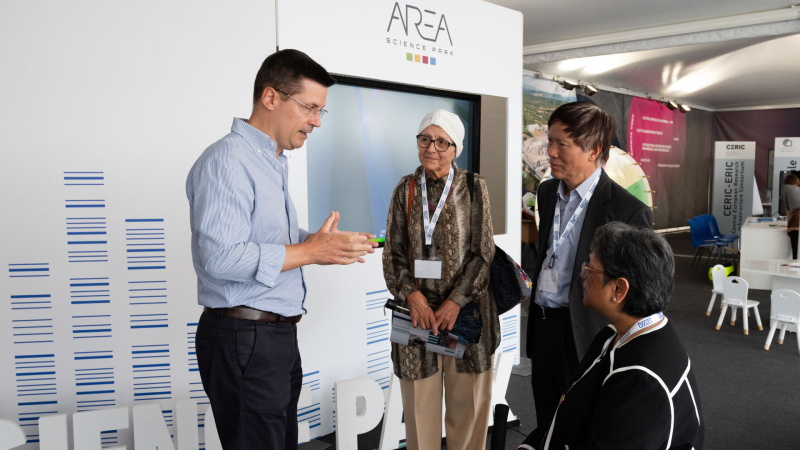Today, great success stems from the work of international teams. Academia, industries and governments should all work to bring down barriers preventing collaboration, allowing developing world scientists to play a key role in ensuring a better future to everyone.
This was a key message of the four panellists who shared their views during the TWAS round table at the 12th edition of Trieste Next science festival. These panellists were brought by TWAS to Trieste for the annual TWAS Council Meeting. At Trieste Next, they engaged with the public on some of the most pressing global issues that scientists are addressing today.
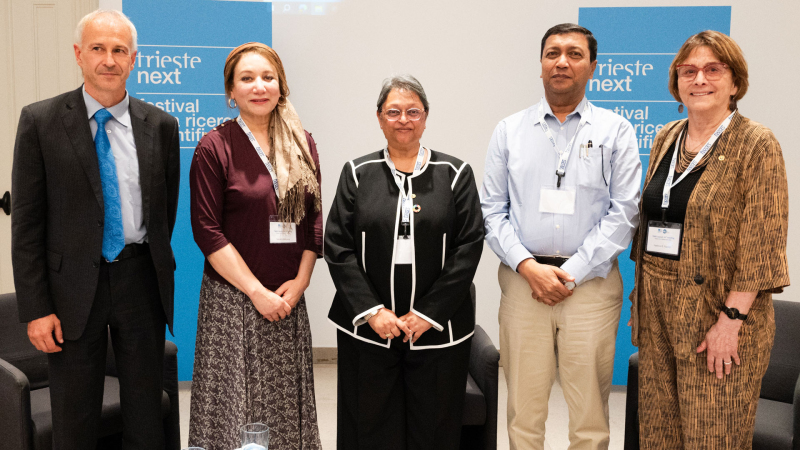
The session was titled 'Science as a development tool: the capacity we need for the future we want'. The panellists were:
- TWAS President Quarraisha Abdool Karim of South Africa, associate scientific director of the Centre for the AIDS Programme of Research in South Africa (CAPRISA);
- TWAS Vice-President for the Arab Region, Sabah AlMomin of Kuwait, a senior research scientist at the Kuwait Institute for Scientific Research;
- TWAS Vice-President for Central and South Asia Muhammad Iqbal Choudhary of Pakistan, coordinator-general OIC-COMSTECH, Pakistan; and
- TWAS Vice-President for Latin America and Caribbean Helena Nader of Brazil, head of the Institute of Pharmacology and Molecular Biology at the Federal University of São Paulo.
Trieste Next is an international science festival hosted in Trieste since 2012. The event attracted more than thousands of visitors from the Region Friuli Venezia Giulia and Italy's neighbouring countries, and beyond. This year, the festival ran from 22–24 September, with a broad agenda of more than 300 speakers and over 100 events, in both Italian and English. TWAS has been a participant since the festival's first edition, in 2012. (See TWAS video on the event below.)
The round table took place on 22 September at the Hall of Columns of Palace of the Region, in Piazza Unità d'Italia, where Trieste Next traditionally takes place. More than 60 people were in the audience, making the conference a fully-attended event. TWAS Programme Coordinator Max Paoli chaired the discussions.
By addressing four different topics the speakers covered a broad spectrum of challenges that the world is now facing, all with ethical implications, Paoli noted. And they offered advice to overcome these challenges at the global level by suggesting what policy-makers, scientists, communicators and the populations at large should do.
Science as an open enterprise
Back in the 1990s when the AIDS pandemic was spreading worldwide, South Africa was one of the countries that most experienced the surge of this disease. Infectious epidemiologist Quarraisha Abdool Karim, now the seventh President of TWAS but then at an early stage of her career, was already at the forefront in the fight against HIV/AIDS.
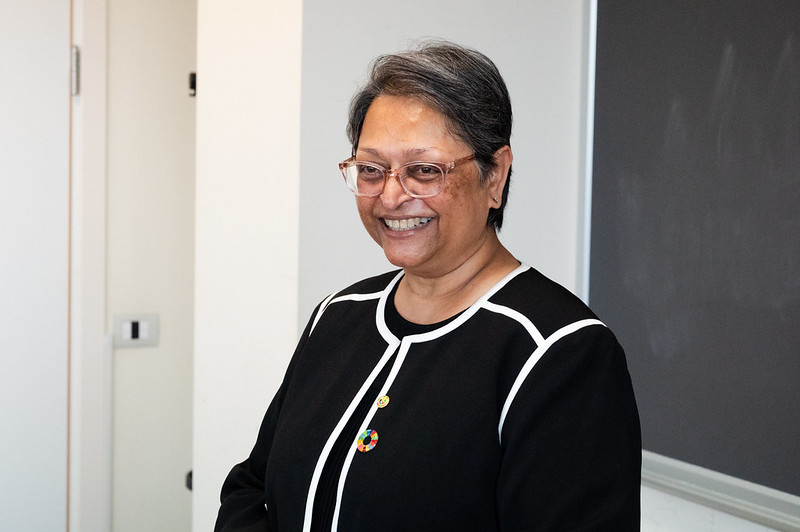
"We soon realized that women were more vulnerable to HIV infections due to the lack of cooperation from their, often infected, partners. Sexual intercourses were unprotected and frequently forced. Young women were, and still are, the most vulnerable," recalled Abdool Karim, who has been a TWAS Fellow since 2015.
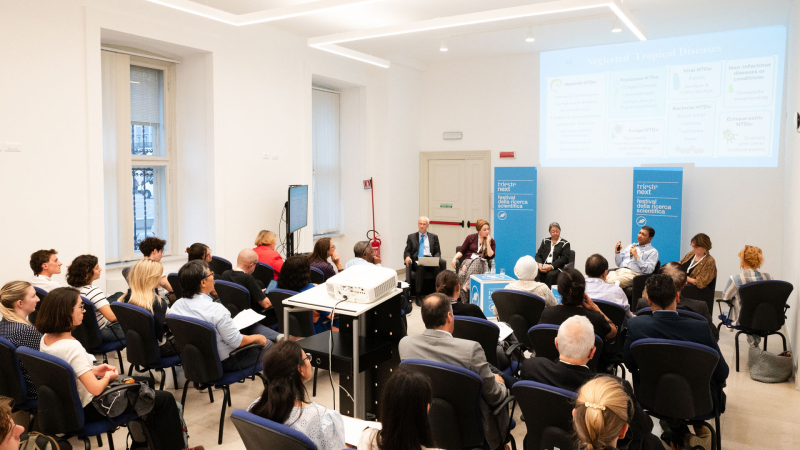
Abdool Karim undertook three population surveys in South Africa between 1990–1992 that provided a snapshot of the local situation. The surveys, she said, informed the two priority questions that CAPRISA has focused on for the past 20 years: How to prevent HIV infection in young women who have 3–8 times more infection than men? And, how to prevent deaths in people living with HIV and tuberculosis (TB)?
From 1993 there were many studies to find prevention methods for women. Their team started this journey in 1993 and it was not until 2010 that they provided, for the first time, proof of concept for what today is called PrEP/Pre-exposure prophylaxis. The long and winding road of this research over 18 years after many failures, persistence and perseverance led, eventually, to the first success: the CAPRISA 004 trial.
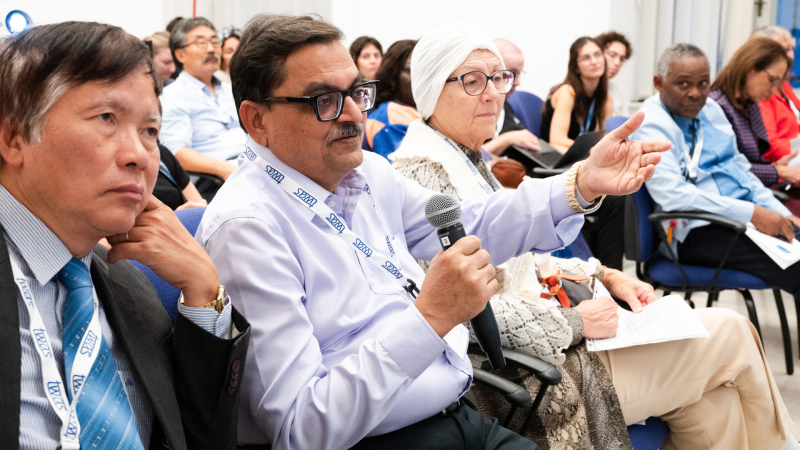
"Our trial assessed the effectiveness and safety of a 1% vaginal gel formulation of the viral inhibitor tenofovir, for the prevention of HIV acquisition in women. But much remains to be done to ensure that these technologies are improved upon and women who need them most have access to them," she said.
Moving to present day, she mentioned the progress made on HIV treatment and prevention of transmission from infected mothers to their infants. "Today, equitable access to antiretroviral therapies (ART) allows better quality of life to infected people, and protects uninfected people from infections," Abdool Karim explained.
However, primary prevention of HIV remains a challenge and much attention has turned to long-acting slow-release products. She described some of the new research underway at CAPRISA in this regard, notably their research on broadly neutralising antibodies as a type of passive immunity/biological prEP.
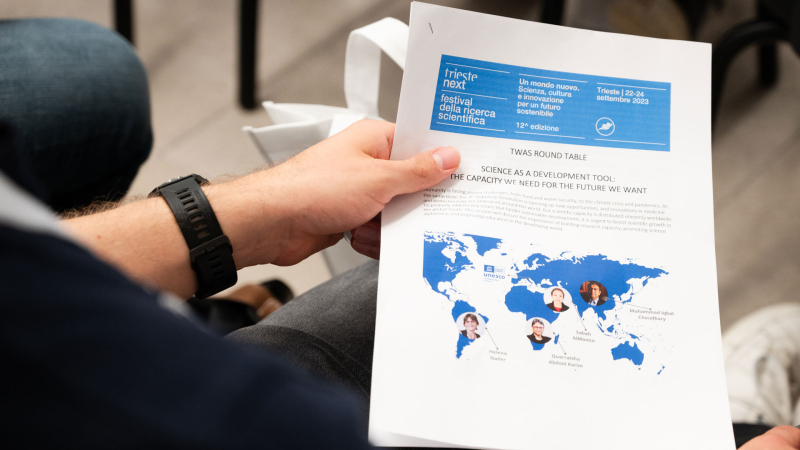
"We have been able to isolate a cell producing a specific type of broadly neutralising antibody from an infected participant from one of our trials that is effective against over 70% of global infections, and we were able to isolate the cell that produces these broadly neutralizing antibodies. Our studies in humans show that these antibodies are safe and we know what dose we need to provide to potentially offer protection over six months. But the studies to show that they work in preventing HIV are ongoing and results should be available in the next 12–24 months," Abdool Karim said.
"Global partnerships and collaboration are key to success, nowadays, and this is the big lesson that we learned from HIV and COVID-19, which we should pass on to the future challenges to ensure a safe planet and healthy people for future generations," TWAS president concluded.
Biotechnology and the environment
The Middle East and North Africa region faces many challenges such as agriculture constraints, food safety, and pollution. But perhaps the most challenging of all is the need to educate people to appreciate the potential of biotechnology.
With these considerations, Sabah AlMomin took the floor at TWAS round table. AlMomin, a TWAS Fellow since 2010, is also a certified risk-management professional from the International Federation of Biosafety Association.
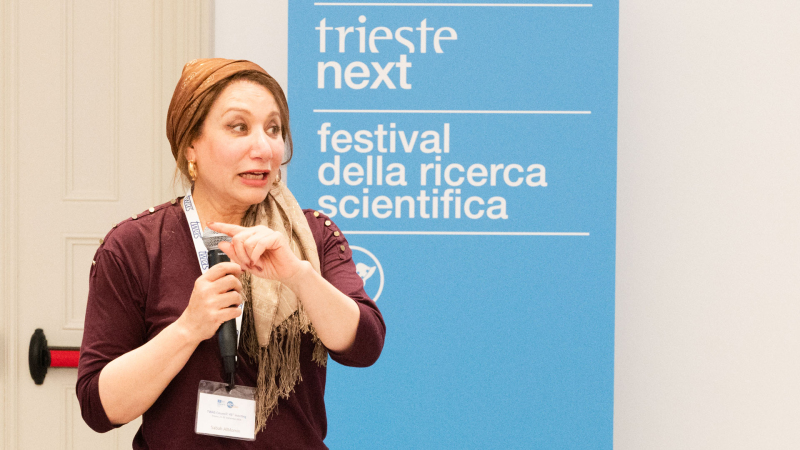
"I've been the first woman who studied genetics abroad, and who went back to Kuwait to apply the new skills," she recalled. "Biotechnology allows effective interventions in a number of fields, from industrial waste management to the production of fertilizers and bioplastics."
She provided examples of biotechnology applications and mentioned Egypt, which is increasingly managing solid waste to produce biofuel, hydrogen and graphene. The United Arab Emirates, she added, grow algae in desert environments using saline water and then process them into biofuels, offering a sustainable energy source. And Saudi Arabia is exploring biofuel production from date.
"There are bacteria that can chew waste and clean the soil, and genetically modified varieties of cotton that need less pesticides and yield 33% more harvest," AlMomin said.
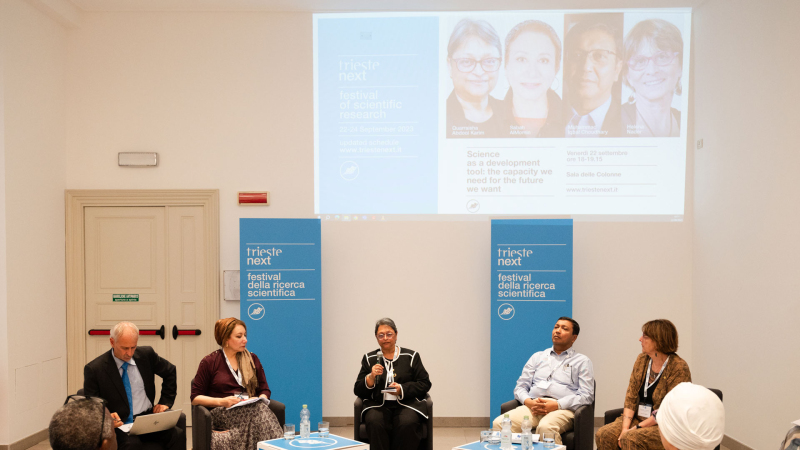
She also recalled her return to Kuwait after working as an educator abroad, and the lesson she learned. As a woman scientist in the Middle East, she had to justify her choices and explain why she was doing research. "At that time, I had to run interviews, go to TV programmes, I was on newspapers. And I realized that my experience could educate people, and that was important."
Neglected tropical diseases
"Today, more than in the past, health is a commercial enterprise designed to make money. Given that, how can we expect that the world population achieves health as the Sustainable Development Goal 3 [Ensure healthy lives and promote well-being for all at all ages] hopes for. How can we hope to eliminate neglected tropical diseases?"
This provocative reflection was Muhammad Iqbal Choudhary's speech's central idea. Speaking of neglected tropical diseases (NTDs), Choudhary, coordinator-general OIC-COMSTECH, distinguished national professor, UNESCO chair on medicinal and bio-organic natural product chemistry and a TWAS Fellow since 2002, brought to the audience's attention an issue that hardly ever makes the headlines.

These diseases, he explained, are a group of 20 different conditions prevailing in tropical and subtropical countries, which affect 1.65 billion people in as many as 179 countries. These are some of the poorest countries in the world, especially vulnerable to the effects of climate change.
"There is still a lot to do because their economic burden is greater than that of malaria, tuberculosis and HIV together," Choudhary urged. "Investments in NTDs are scarce, and many drugs that are currently used to treat them were not devised for the purpose."
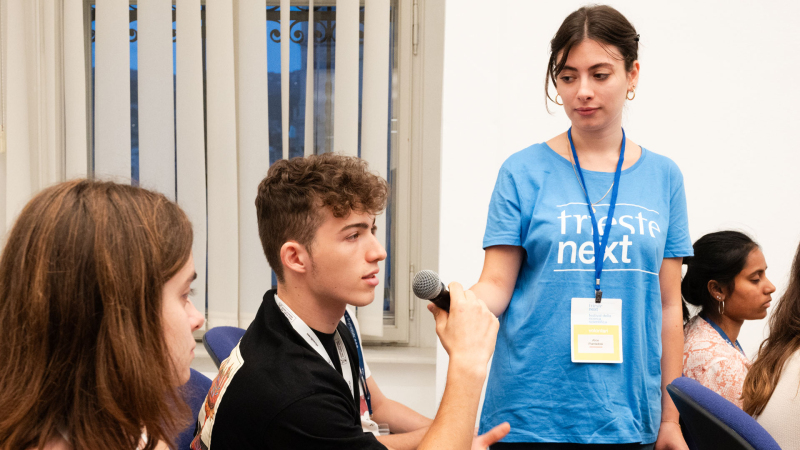
He urged scientists to make a change in perspectives, both in basic science and with pharmaceutical companies. "The North and the South should work more together to bridge this gap, through open science. Scientists should request more investments from the pharmaceutical sectors in the field of drug discovery and development. We all should motivate and educate people, to let them understand the importance of research."
Why save the Amazon rainforest
Consisting of 8.5 million square kilometres, of which 5.5. million represent tropical rainforest, the Amazon is essential for the planet because it regulates the global climate through the distribution of rainfall and humidity, not only in Brazil but also in the neighbouring countries. And the Amazon 'savannization' (progressive desertification) due to deforestation and land use change would impact on more than 11 million people, exposing them to heat stress and health risks.
"We need to save the Amazon, but also the people who live there," said Helena B. Nader, a TWAS Fellow since 2013, and the President of the Brazilian Academy of Sciences. In her speech, she drew the audience's attention to the biodiversity and social diversity that the Amazon is home to.
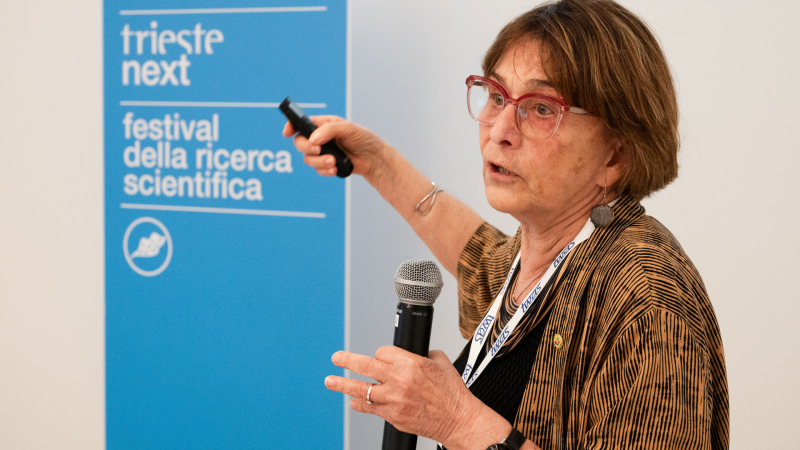
"More than 2.2 million indigenous people live in the Amazon, with 410 indigenous groups speaking more than 300 languages and encompassing 8 Countries (Bolivia, Brazil, Colombia, Ecuador, Guyana, Peru, Venezuela, Suriname and the territory of French Guiana)," she said. The biodiversity is amazing too, as the region holds more than half of the terrestrial species of animals, plants and insects.
"Local farmers make a living from the Amazon in a sustainable way. But the whole region falls prey to crime, mining, and unsustainable activities," she emphasized. Illegal miners, for example, search for gold and, for this purpose, fill the rivers with mercury, a volatile substance that pollutes the whole region.
She also mentioned the disadvantaged condition of local women, which makes the SDG5 on gender equality far from reach. "Therefore, if we wish to keep the forest up, we need to preserve the indigenous communities that represent a global richness, along with their environment," Nader said.
Sustainable development of this region in the years ahead would grant social inclusion of ethnical groups, conservation of biodiversity and ecosystems and, ultimately, better quality of life for all.
"We should bring justice, equilibrium, and equity to all the societies," she urged. "Because too often we ask ethical behaviour of other countries, but we forget to ask the same ethical behaviours of ourselves."
Cristina Serra
More photos about the round table and TWAS at Trieste Next are available here and on the TWAS Flickr page.
